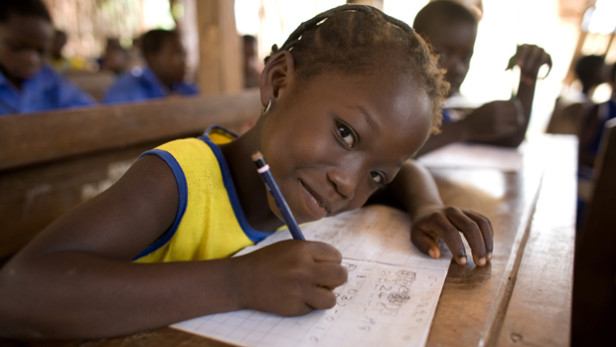Human Rights of Women
Source: Devex
Girls are capable of great things. When they are healthy and educated, they can transform the world around them. But girls are also regularly denied the opportunity to fulfill their potential, hemmed in by the realities of poverty and rampant inequality.

Rather than going to school, they are expected to take on the role of housekeeper and caregiver, bearing a disproportionate burden for domestic chores compared to their brothers. They are sometimes married too young, to men they did not choose, and they become mothers when they themselves are still children. They are subjected to violence and harassment on a routine basis.
Urgent action is needed to tackle this inequality. Through targeted action, improved data collection, monitoring, fostering country ownership and an enabling environment at national level, the European Union can play a leading role in catalyzing lasting change for girls.
Targeted action
Experience shows that when girls are not explicitly mentioned as a unique cohort, interventions do not reach them at all. Girls face particular and acute challenges that are different to those of women, men and boys. At the same time, girls' experiences differ according to their age, for example with adolescent girls facing different challenges from younger girls.
The EU must therefore ensure specific actions are targeted at promoting and protecting girls' rights, as well as mainstreaming gender throughout all its development and humanitarian policies and interventions.
Given the proven multiplier effect investing in girls' education has on breaking the cycle of poverty, the EU would be wise to target its assistance on ensuring girls receive a quality education, including by supporting them to make the transition to secondary education when the risk of dropping out of school increases.
Crucially, the EU must support the provision of quality education, which equips girls with the skills necessary to succeed in life and adequately prepares them to enter the labor market. We have often witnessed a mismatch between the skills required and the skills acquired, and by working hand-in-hand with nontraditional partners — for example the private sector — the EU can help equip girls with attributes needed to find meaningful employment.
This could be achieved through the establishment of a flagship program focusing on girls' education and economic empowerment in the Development Cooperation Instrument's global public goods and challenges program, which would help ensure sufficient attention and — crucially — funding is directed to this issue in its 2014-2020 multi-annual financial framework.
Improved data collection and monitoring
In addition to establishing specific programs on girls, the EU must improve its data collection and monitoring to guarantee that aid is reaching the intended beneficiaries and is having the highest impact. This means disaggregating data according to both sex and age, ensuring girls of all ages are identified as a unique cohort and not simply grouped with women and/or children as a whole.
Without this, it's impossible to assess the impact EU aid is having on promoting girls' rights. Comprehensive data collection will therefore enable the EU to improve the monitoring and evaluation of its programs, which in turn will allow best-practice initiatives to be scaled up.
Country ownership and an enabling environment
Gender inequality is manifested in every institution of the state and the governance structures through which society is organized in many developing countries. Political, legal, judicial and educational spheres all implicitly favor men there.
If its aid is to have a lasting impact on the lives of girls, the EU must work at a political level with partner governments to challenge this institutionalized discrimination and create a favorable environment for girls. By promoting country ownership, the EU can help embed girls' rights and gender equality into national policies and funding, thereby laying the foundations for sustainable change.
With the review of both the gender action plan and the human rights strategic framework coming up, the EU has a golden opportunity to ensure its actions further girls' rights. However, it's critical that in the review process the two plans are aligned to provide a complementary and coherent strategy towards girls' empowerment.
By ensuring its policies and funding have girls' rights at their heart, the EU can empower millions of girls throughout the world to realize their rights and ensure a better future. If the EU is serious about poverty eradication and improving the lives of the world's poorest citizens, protecting girls' rights and promoting gender equality must be its guiding light.
